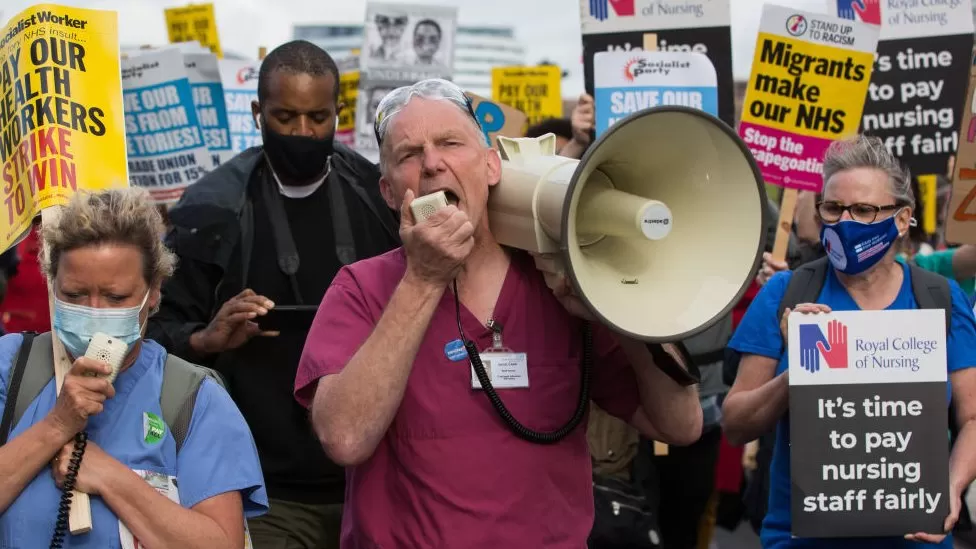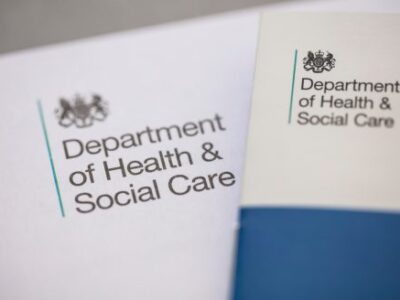A deal must be found to end the NHS strikes ahead of the “winter onslaught”, health managers say. NHS Providers interim chief executive Saffron Cordery said the “last thing” the NHS needed was prolonged industrial action as winter hits. She said there was no doubt patients would lose out, with longer waits for hospital treatment. Unions in England are meeting ministers on Tuesday after Royal College of Nursing (RCN) members voted to strike.
Health Secretary Steve Barclay is meeting RCN leaders along with representatives of the other major NHS unions, including Unison, GMB, and Unite, which are all balloting over industrial action. The votes could lead to paramedics, health care assistants, porters, and cleaners joining nurses in taking strike action. While emergency care will be protected during the RCN strike, Ms Co.rdery said there was “no doubt” patients would still be affected.

The major fear is that the waiting list for planned treatment will grow even more – there are already more than seven million people in England waiting for treatment; a record high. Ms Cordery said: “We understand the frustration felt by nurses following years of below-inflation pay settlements, the rising cost of living, and working through a pandemic, and we strongly urge both sides in these talks to find a deal that recognises their hard work and skills. “The last thing the health service needs right now is prolonged industrial action. It’s good to see dialogue taking place.” The meeting comes after Mr Barclay briefly met RCN general secretary Patricia Cullen last week following the announcement that the union’s members had voted for strikes in more than half the hospitals, mental health and community services in England. The strike action will also affect Scotland, Wales and Northern Ireland.
Meeting ‘must be more than box-ticking’
The meeting on Tuesday does not represent the restarting of formal pay talks, but is the first time the two sides have met since early summer. GMB national secretary Rachel Harrison said it must be “more than a box-ticking exercise” if the government wants to avoid an unprecedented winter of strikes. At the weekend, Mr Barclay, writing in the Sunday Telegraph, had warned that the RCN’s demands for a 17% pay rise were simply unaffordable and would only make inflation worse.
The government in England has given NHS staff, including nurses, an average of 4.75%, which is in line with what was recommended by the independent NHS Pay Review Body. The government has pointed out that this came after a 3% pay increase last year – at a time when the rest of the public sector had a pay freeze – in recognition of the work done during the pandemic. Ms Cordery’s plea on strikes comes as NHS Providers hosts its annual conference of NHS leaders in Liverpool on Tuesday and Wednesday.
Feedback from its members showed many were reporting they were more concerned about this winter than any previous ones during their careers. Some are fearing an “onslaught” in the coming months, as ongoing pressures from Covid and the threat of strikes and the cost-of-living crisis combine with the normal winter pressures. “Alarm bells should be ringing across Whitehall,” said Ms Cordery.
![]()





